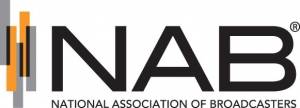NAB calls spectrum auction process 'unnecessarily complex'
After a lengthy examination of the FCC’s strategy for the upcoming wireless spectrum auctions in 2014, the NAB thinks that the overall approach being pursued for the auction is “unnecessarily complex, appears to ignore important engineering considerations and overlooks more basic and straightforward solutions.”
In reply comments to the commission on the broadcast auctions, the broadcast industry’s main lobby group said it “appreciates that the Commission has hired some of the best academic minds — including Nobel Prize winning economists — and they have produced some extremely thoughtful and interesting work with respect to the auction design.”

However, “rather than designing an economist’s academic ideal of a reverse auction untethered from engineering realities, the auction should be designed with an eye towards achieving a viable nationwide band plan driven in part by the realistic repacking of broadcast stations,” the NAB said.
A simpler and more effective approach, the NAB said, would first identify repacking scenarios nationwide for various realistic amounts of cleared spectrum.
“This will help the Commission determine in what markets it needs volunteers, and how many of them, to produce a workable and efficient nationwide plan," the NAB said. "The Commission should then project generally what proceeds it expects to raise in the forward auction.”
Finally, the NAB said, the FCC should maximize its anticipated financial resources by using them to offer a sufficient incentive to stations in the markets where it truly requires volunteers. This approach will allow the Commission to free up spectrum where the wireless carriers assert they really need it (the top 25 markets).
From those auctioned markets, the NAB said, the Commission can create nationwide bands of spectrum that avoid the widespread harmful interference that the Notice’s current variable plan would produce by attempting to clear different amounts of spectrum in markets across the country.
Get the TV Tech Newsletter
The professional video industry's #1 source for news, trends and product and tech information. Sign up below.
“No matter what approach the Commission employs, it simply cannot adopt a split or variable band plan,” the NAB said. “Every commenter who addressed the Notice’s lead proposed band plan made clear that a split plan — interspersing broadcasters between wireless uplink and downlink operations — does not work.
The NAB’s initial comments make clear that a variable plan would create either widespread harmful interference for both broadcasters and wireless carriers or would require substantial wireless exclusion zones, where wireless license holders could not operate on the spectrum they won at auction.
The NAB also expressed concern about comments raising the possibility that the FCC would repack broadcasters beyond the goal of creating nationwide bands of spectrum for commercial wireless services.
“Whereas Congress clearly intended this process to be driven by market dynamics, some commenters appear to suggest that the Commission should use this repacking opportunity as a pretext for a straight, government-directed reallocation,” the broadcast lobby organization said.
The plan, said the NAB, should be a non-starter.
“Sound public policy also dictates that the Commission should not undertake a reallocation beyond what it needs to create nationwide bands of spectrum for mobile broadband consistent with a voluntary, market-based auction," the NAB said. "Apart from contravening Congressional intent, reallocating spectrum beyond the auction through repacking will, among other things: (1) disproportionately hurt Western states by wiping out low power television stations and translators; (2) undercut attempts to diversify the broadcast industry and opportunities for broadcasters to innovate; and (3) eliminate unlicensed use of TV white spaces, which just recently appeared to be a top Commission priority.”
